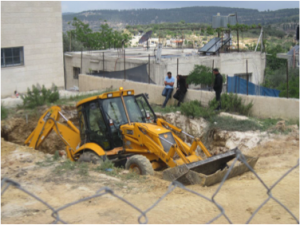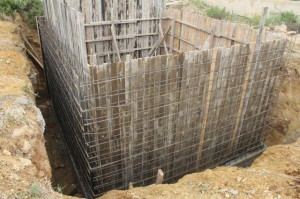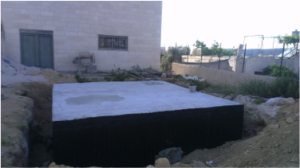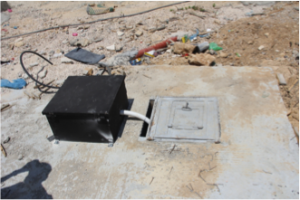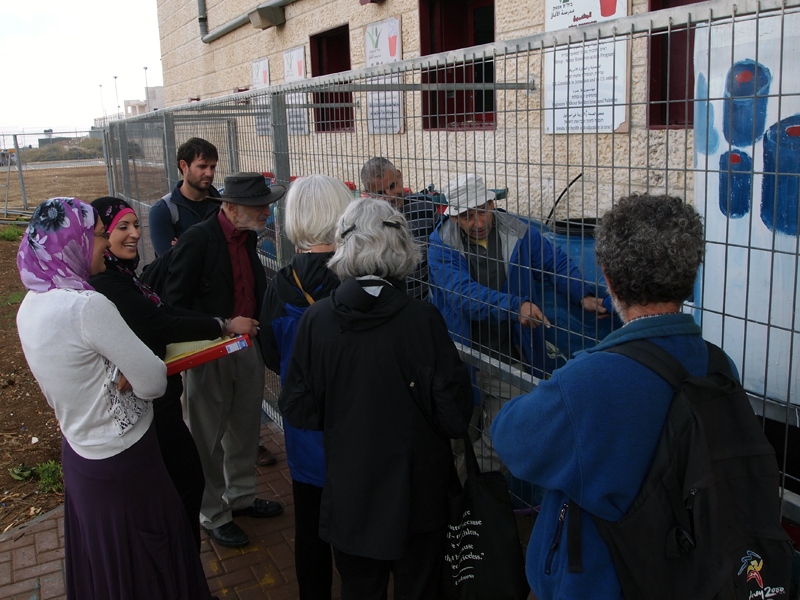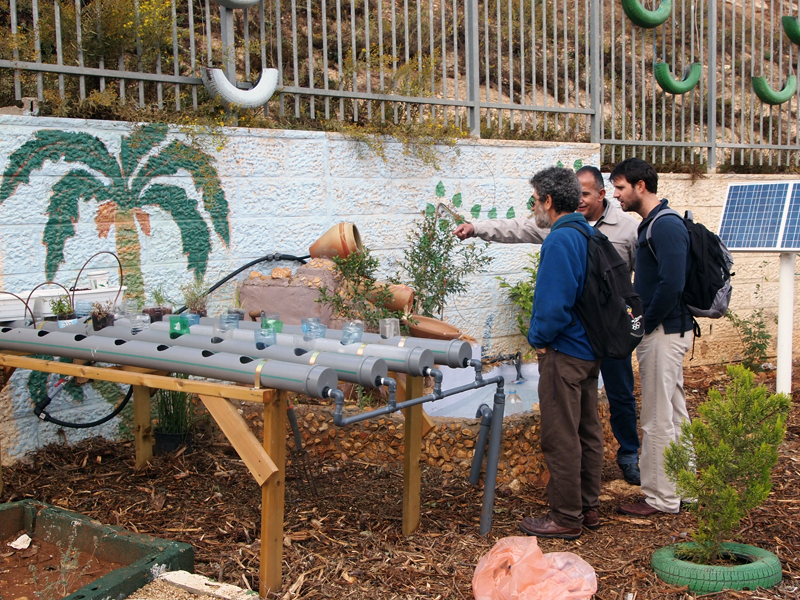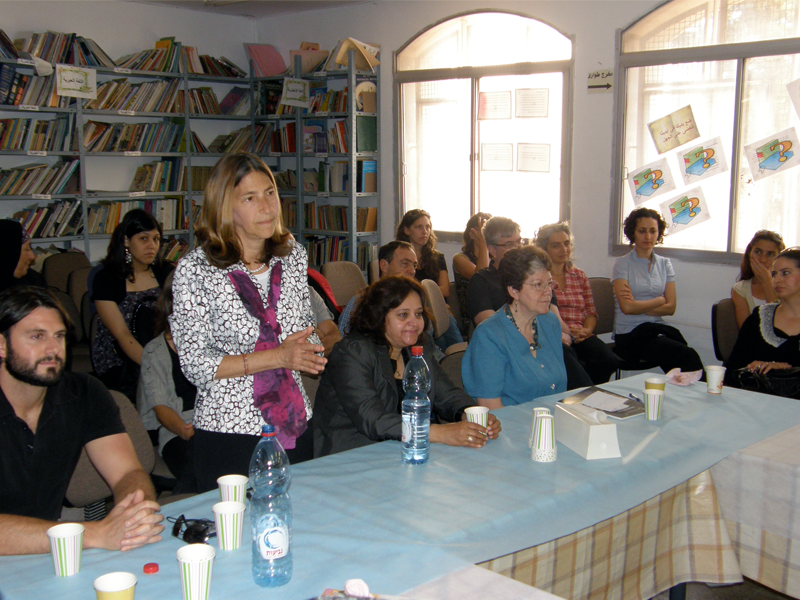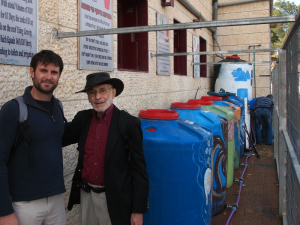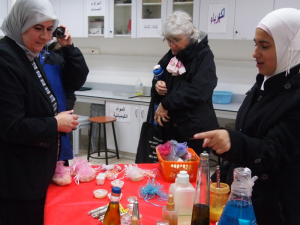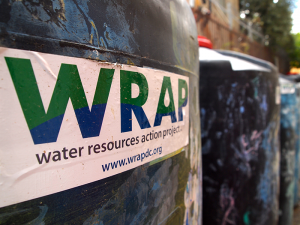WRAP Completes Second West Bank Project
Village of Husan, West Bank | April 23, 2015
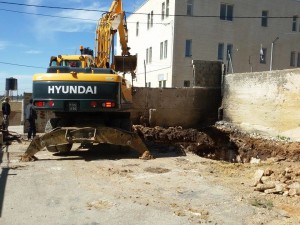 The Water Resources Action Project (WRAP) recently completed construction of its second project in the West Bank. WRAP, in partnership with EcoPeace Middle East’s Bethlehem Office, constructed a cistern system at the Al-Sedeeq Primary School located in the Village of Husan in the West Bank, an area with an average annual rainfall of only 500 mL. Al-Sedeeq is a public school serving 389 Arab boys in 13 grades. The school’s primary source of water is an unreliable municipal water source, and because of this, the school experienced over 30 days of restroom closures due to water shortages last year.
The Water Resources Action Project (WRAP) recently completed construction of its second project in the West Bank. WRAP, in partnership with EcoPeace Middle East’s Bethlehem Office, constructed a cistern system at the Al-Sedeeq Primary School located in the Village of Husan in the West Bank, an area with an average annual rainfall of only 500 mL. Al-Sedeeq is a public school serving 389 Arab boys in 13 grades. The school’s primary source of water is an unreliable municipal water source, and because of this, the school experienced over 30 days of restroom closures due to water shortages last year.
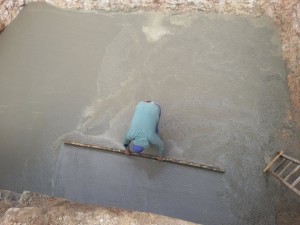 This is WRAP’s sixth project in the Middle East, following successful rain barrel and cistern system installations at schools in East Jerusalem, Northern Israel, and the West Bank. “With the completion of this project, WRAP is continuing our commitment to address water security issues within this region in an informed manner,” stressed WRAP’s Executive Director, Brendan McGinnis. “We are pleased to have built on the successful model established with our first West Bank cistern and hope that we may continue to do so in other areas of the West Bank. Al-Sedeeq will be an integral part of the network of schools with similar programs that WRAP is establishing throughout Israel, Palestine, and soon, Jordan.”
This is WRAP’s sixth project in the Middle East, following successful rain barrel and cistern system installations at schools in East Jerusalem, Northern Israel, and the West Bank. “With the completion of this project, WRAP is continuing our commitment to address water security issues within this region in an informed manner,” stressed WRAP’s Executive Director, Brendan McGinnis. “We are pleased to have built on the successful model established with our first West Bank cistern and hope that we may continue to do so in other areas of the West Bank. Al-Sedeeq will be an integral part of the network of schools with similar programs that WRAP is establishing throughout Israel, Palestine, and soon, Jordan.”
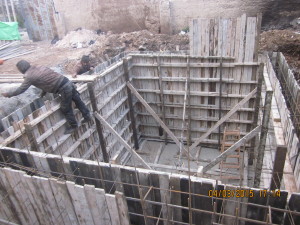 The cistern system, an underground cement storage tank, holds rainwater collected and diverted from the roof of the school. The rainwater is then pumped to the school’s restrooms, where it is utilized for toilet flushing. The cistern holds up to 62,000 liters of rainwater, greatly reducing the school’s cost for water and vulnerability to an unreliable municipal water source. The project would help to ensure continued usage of clean restrooms throughout the entire school year and provide the possibility for summer classes and community gardening.
The cistern system, an underground cement storage tank, holds rainwater collected and diverted from the roof of the school. The rainwater is then pumped to the school’s restrooms, where it is utilized for toilet flushing. The cistern holds up to 62,000 liters of rainwater, greatly reducing the school’s cost for water and vulnerability to an unreliable municipal water source. The project would help to ensure continued usage of clean restrooms throughout the entire school year and provide the possibility for summer classes and community gardening.
The overall effort includes a supplemental environmental curriculum overseen by EcoPeace to heighten water awareness and conservation, while empowering local water resources stewardship. Water conservation, the interconnectedness of the surrounding ecosystem, and hands-on student engagement in monitoring and reporting of rainfall collection and usage data serve as the foundation for the program. WRAP and EcoPeace will work closely with the school to ensure the system is regularly and properly maintained. This arrangement with EcoPeace Middle East has been successfully executed at various WRAP project schools in the past, including a similar cistern system installed in July 2013 at the Battir Girls School in the West Bank.
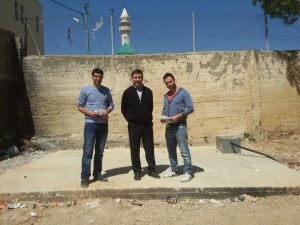 The installation of the cistern at the Al-Sedeeq School and the parallel environmental curriculum was made possible thanks to grants from the Jerusalem Fund, the Firedoll Foundation, and the April Fund. Through this project, WRAP strives to not only alleviate the struggles associated with water shortages in this region, but also encourage the students and greater community to collaborate on stewarding this precious natural resource.
The installation of the cistern at the Al-Sedeeq School and the parallel environmental curriculum was made possible thanks to grants from the Jerusalem Fund, the Firedoll Foundation, and the April Fund. Through this project, WRAP strives to not only alleviate the struggles associated with water shortages in this region, but also encourage the students and greater community to collaborate on stewarding this precious natural resource.

